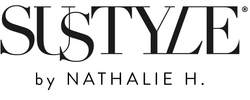Certificates
We take sustainability very seriously and only work with manufacturers that are certified according to strict environmental and ethical standards. Likewise, only certified colors are used for the prints applied to our textiles.
These certificates include:
Organic Content Standard (OCS 100):
The Organic Content Standard (OCS) applies to products, excluding food, that contain 95-100 percent organic material. It allows for the tracking of the content and amount of organic material in a final product and traces the raw material from the source to the final product.
The social and environmental aspects of production are ensured here by European laws.
You can find more information here:
https://textileexchange.org/organic-content-standard/
https://certifications.controlunion.com/de/certification-programs/certification-programs/ocs-100-organic-content-standard
Fair Wear Foundation:
The Fair Wear Foundation (FWF) is a non-profit organization that, together with its member companies and other partners such as trade unions, NGOs, factories, business associations, and governments, pursues a clear goal: to improve working conditions in the clothing industry.
FairTrade Cotton:
The label "Fairtrade Cotton" stands for socially acceptable living and working conditions in cotton production. It is particularly aimed at small farmers. The license fees and a portion of the Fairtrade premium are used for projects in the producing countries. The label also sets requirements for environmentally friendly cotton cultivation.
You can find more information here:
https://www.fairtrade-deutschland.de/was-ist-fairtrade/fairtrade-siegel
World Fair Trade Organization (WFTO)
The WFTO recognizes companies that are committed to improving the living and working conditions of producers in developing countries. The WFTO verifies that member companies adhere to the ten principles of fair trade.
You can find more information here:
https://wfto.com/
Global Organic Textile Standard (GOTS): GOTS is the world's leading textile processing standard for organic fibers. As an independent non-profit organization, it incorporates ecological and social criteria in the production of textiles.
You can find more information here:
https://global-standard.org/de
OEKO-TEX Eco Passport
This label is an independent certification system for chemicals, dyes, and auxiliaries used in the textile and leather industry. Within a multi-stage process, it is analyzed whether each individual ingredient of the chemical products meets legal requirements and does not harm human health.
You can find more information here:
https://www.oeko-tex.com/de/unsere-standards/oeko-tex-eco-passport
WHY DO WE USE ORGANIC COTTON?
The decision for organic cotton over conventional cotton makes a huge contribution to our climate and our planet - and thus for all people on this earth.


